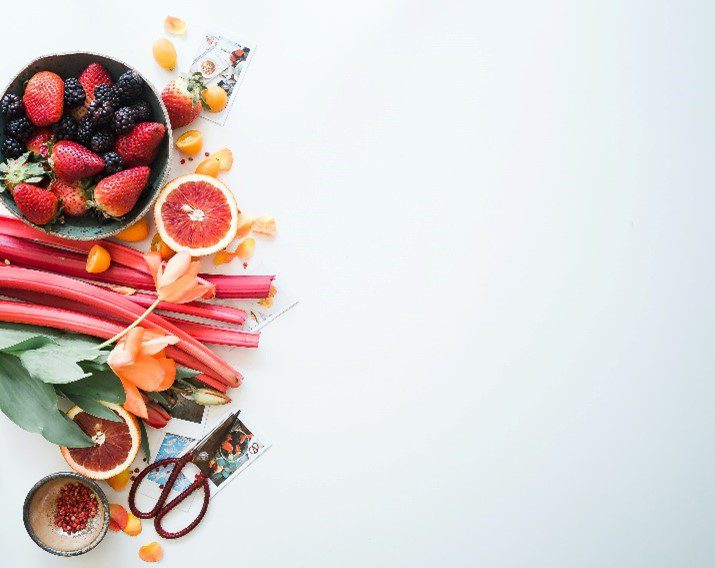Eating fruits and vegetables is a crucial element of any balanced diet. Many people fall short of the recommended daily amount of fruits and vegetables. Part of this is because of how they’re divvying up their plate. People tend to load their plates with carbs, followed by a protein, and fill whatever meager space is left with produce. However, health experts recommend that produce should account for half of your plate, with protein and whole grains rounding out the other half.
For bariatric patients, this recommendation shifts to place an emphasis on protein. If you’re following a bariatric diet, you’ll allocate 50% of your plate to proteins, 25-35% of your plate to produce, and the remaining 15-25% to whole grains and healthy fats. Lack of planning is another significant reason people fall short of their produce needs. You may run out of time to pack or prepare a nutritious meal, you may be tired of the same fruits and vegetables, or you may not realize how many options you have.
While some produce is available all year round, others reach their peak freshness during the spring. Fruits and veggies that are in season are richer in flavor. They often cost less too. Consider adding these spring fruits and veggies to your cart on your next grocery trip:
- Pineapple. Pineapple is a great option to add a sweet and tangy flavor to protein smoothies. You can also grill pineapple rings or add them to a chicken kabab. Pineapples are also a good source of fiber, vitamin C, and B vitamins.
- Peas. Peas can add a hint of sweetness to vegetable dishes, and they have a surprisingly high amount of protein. Peas are versatile, and you can enjoy them in stir-fries, as a pureed soup, or as a standalone veggie.
- Strawberries. Strawberries are another great source of vitamin C and fiber. They’re also full of polyphenols, a potent antioxidant. Strawberries are a great option to add to protein smoothies, Greek yogurt, salads, or as a snack. They’re sodium-free, fat-free, cholesterol-free, and rich in manganese and potassium.
- Asparagus. Asparagus is rich in fiber, vitamin K, and folate. You can add them to omelets, stir-fries, or roast them. You can make a meal out of asparagus by baking them in a creamy turkey roll-up. Preheat the oven to 375, spread a thin layer of cream cheese on a slice or two of turkey, and wrap it around a few asparagus stalks. Bake the roll-ups for 20-25 minutes
- Lemons. Lemons are another great source of vitamin C and fiber. While lemons may be too tart to enjoy by themselves, they add a zesty zing of flavor to water.
- Spinach. Leafy greens like spinach are packed with folic acid, vitamin A, vitamin C, and vitamin K. Spinach is a versatile addition to many meals. You can add it to omelets, salads, pasta dishes, quiche, stir-fries, or enjoy it as a side dish.
- Rhubarb. Rhubarb is technically a vegetable, but it’s often associated with fruits due to its tart taste. They’re rich in anthocyanins, a flavonoid and plant pigment that exerts antioxidant effects. Rhubarb pairs well with pineapples and berries, but you can also use it to make a jam that pairs well with meat.
- Carrots. Carrots are a great healthy alternative to chips if you’re craving something crunchy. Carrots are nutrient-dense, and you can prepare them in several ways. Carrots go well in stews, roasted alongside other veggies, salads, and soups. You can also enjoy them as a snack or dip them in hummus to increase the protein.
- Kiwis. Like many other fruits on this list, kiwis are a good source of fiber, vitamin C, and antioxidants. Kiwis also support heart health due to their high carotenoid content and other nutritional properties.
- Mushrooms. Mushrooms come in countless varieties and add a savory umami punch to meals. They’re also rich in antioxidants that help support your immune system. After bariatric surgery, you’ll want to focus on consuming lean meats. However, you can make mushroom burgers to satisfy any fast-food cravings without breaking your diet.
You may worry that your diet will be bland and boring after bariatric surgery, but that isn’t the case. Shopping for seasonal produce is a budget-friendly way to meet your nutritional needs and expand your diet. You can enjoy most of the flavors you did before bariatric surgery but with a healthy twist. Instead of greasy burgers, try a mushroom burger with a lettuce bun. Instead of ice cream, mix fruits into Greek yogurt or protein shakes (you can freeze them to get that ice cream consistency). Contact us to learn how bariatric surgery can benefit your health and wellness.





